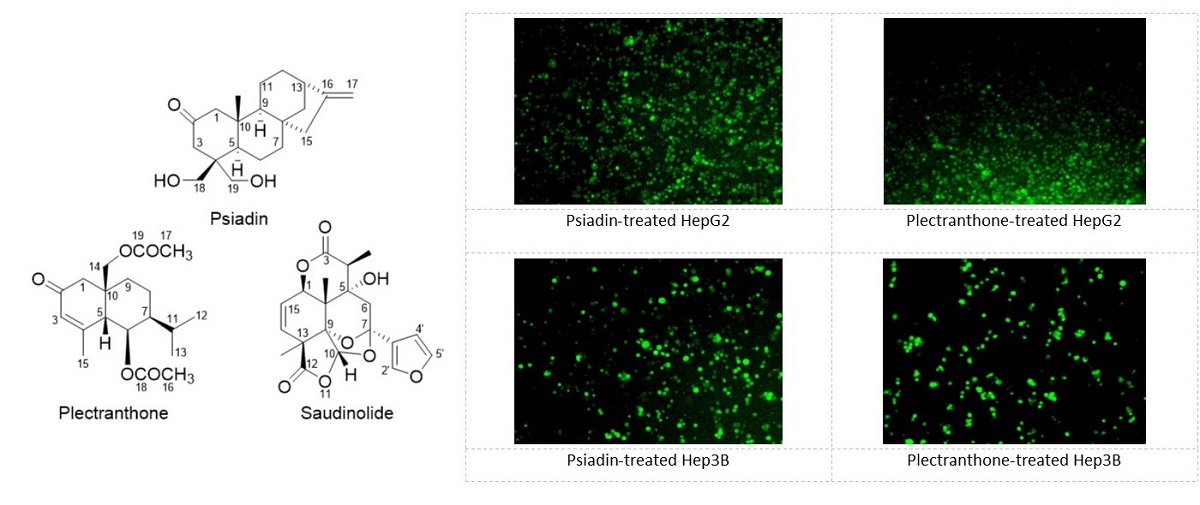: Plant-derived terpenes have aroused considerable interest as chemotherapeutic agents for a variety of diseases. This study aimed at the isolation and purification of the scarce terpenes psiadin, plectranthone and saudinolide from their respective plants, followed by the determination of antiproliferative activity, against hepatic cancer cell lines (HepG2, Hep3B), and the potential molecular mechanisms. Time- and dose-dependent cytotoxicity, evaluated using MTT and colony-forming assays, were exhibited by psiadin and plectranthone against the cancer cells. Flow cytometry showed that these two terpenes blocked cell cycle progression and induced mitochondrial-mediated apoptosis, particularly through increased cytochrome c and disruption of mitochondrial membrane potential. Additionally, they initiated the generation of reactive oxygen species as well as inhibiting NF-B. Psiadin lowered several essential cyclins and cyclin-dependent kinases and reduced RB activation. It was concluded that psiadin, in particular, has a significant therapeutic potential with the biggest advantage of differentiating between cancer and normal cells which is acutely lacking in current cytotoxic drugs. Its precise mode of action needs further investigation but appears predominantly to cause cell cycle arrest by interfering with cyclin production. It will be important to determine, in future studies, whether these terpenes will similarly inhibit other cancer cell lines and retain its activity against tumors in vivo.

